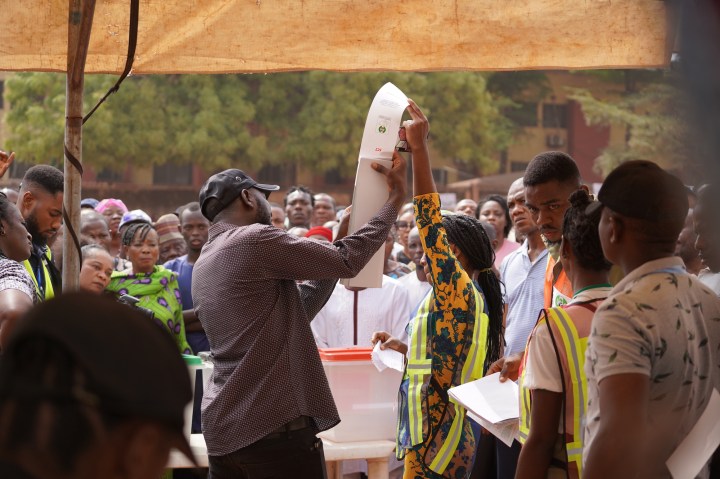ISS TODAY OP-ED
Recent elections across the continent show Africans’ growing demand for competent leadership

Trends suggest that Africa’s electorate is maturing and that political parties can no longer take voters for granted.
Since Africa’s third wave of democratisation, many countries have taken on democracy — abolishing military dictatorship, undertaking constitutional reviews and embracing multiparty politics and elections. Yet the continent still struggles with poor leadership. The governing elite has failed to address citizens’ needs and drive a development agenda.
In countries such as Equatorial Guinea, Cameroon, Angola, Republic of the Congo, Uganda and Chad, leaders have been in power for over three decades under so-called democracies. Even when presidents have changed, individuals from the same party or two major parties have typically alternated power.
Many states – like Tanzania, Angola, South Africa, Rwanda, Ethiopia, Botswana, Zimbabwe, Mozambique and Namibia – are still dominated by one party. Countries like Ghana, Nigeria, Benin and Mali are governed by two political parties that alternate power.
However, recent election results show citizens’ desire for new leadership. Ghana’s 2020 general elections produced a historic split parliament. For the first time, the governing New Patriotic Party and main opposition (National Democratic Congress) had an equal number of seats, with a Speaker elected from the opposition. For many analysts, this was an expression of citizens’ desire to see an end to winner-takes-all politics, and better collaboration among the governing elite.
South African shift
In South Africa, the African National Congress (ANC), which has been in power since 1994 and has won every election, has started losing its grip, especially in metropolitan cities. The party witnessed its worst performance in the 2021 local government elections, winning only 46% of the votes, down from the 54% it recorded in the previous municipal polls.
This marked the first time the ANC failed to win the majority in an election, reflecting citizens’ dissatisfaction with the party’s performance. Some analysts predict it may win just 40% of the 2024 elections and be forced into messy governing coalitions.
Political climate change
Likewise, in Angola, the popularity of the People’s Movement for the Liberation of Angola — which has ruled since independence in 1975 — is declining. Since 2008, the party’s fortunes have fallen from winning a supermajority of 81.6% in the National Assembly to only 51.2% of seats in 2022. This trend suggests the ruling party could lose the next election in 2027.
Senegal’s July 2022 parliamentary polls also marked the ruling coalition’s loss of its absolute majority in Parliament. The coalition, including the president’s Alliance for the Republic party, won 82 seats out of 165, a drop from the 125 it recorded in 2017. This was the first time a ruling party’s coalition lost an absolute majority in the country’s Parliament, meaning it must now rely on other political parties to pass legislation.
In Kenya, the August 2022 elections saw former deputy president William Ruto defeat longstanding opposition leader Raila Odinga. Ruto prevailed over tribal politics to earn a historic victory despite then-president Uhuru Kenyatta’s support for Odinga. Campaigning on his humble beginnings, Ruto described the election as a battle between ordinary hustlers and ruling dynasties (the Kenyatta and Odinga families) who have governed the country for decades. This appeared to resonate with voters, especially Kenya’s citizenry.
Lesotho’s October 2022 election results also indicated a dramatic shift in voting preferences. After two decades of one-party dominance, voters have since 2012 removed every incumbent party. In 2022, the Revolution for Prosperity party — established just six months before the poll and led by outsider Sam Matekane — won 56 seats out of the 120. The incumbent All Basotho Convention took only eight seats in a strong signal that the electorate couldn’t be taken for granted.
Most recently, Nigeria’s February presidential and legislative elections saw a third political force emerge in the continent’s most populous country. Many observers described the polls as the most competitive in the country’s history, with a departure from the two-horse race between the governing All Progressives Congress (APC) and the main opposition Peoples Democratic Party (PDP).
Peter Obi, former Anambra state governor, led the Labour Party to win 12 states, including president-elect Bola Tinubu’s backyard of Lagos and the federal capital, Abuja. Obi won about 25% of total votes, with the APC getting 37% and PDP 29%. So for the first time, the election winner failed to secure a majority of all ballots cast. Obi’s significant entry has shaken Nigerian politics, offering a credible third alternative and hope for many who have lost faith in the APC and PDP.
These examples show a maturing in the voting trend of Africa’s electorate. No political party can take them for granted anymore. African citizens are also clearly willing to rise above ethnic, tribal and religious considerations to vote for competence, if it emerges. The days of governing elites assuming they will sweep the polls are ending, and if the course continues, most ruling dynasties will soon be overhauled. DM
Enoch Randy Aikins, Researcher, African Futures and Innovation, Institute for Security Studies (ISS) Pretoria.
First published by ISS Today.

















Comments - Please login in order to comment.